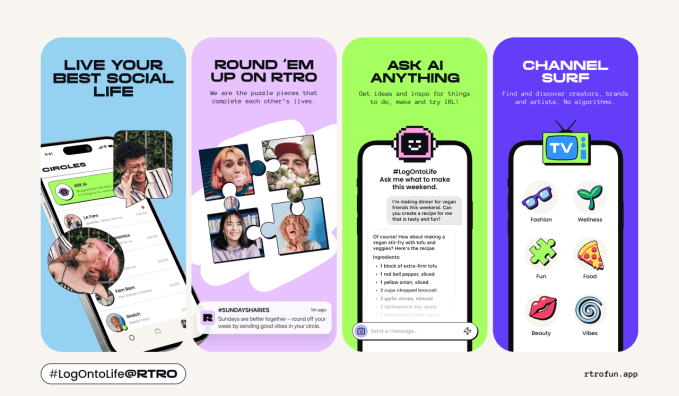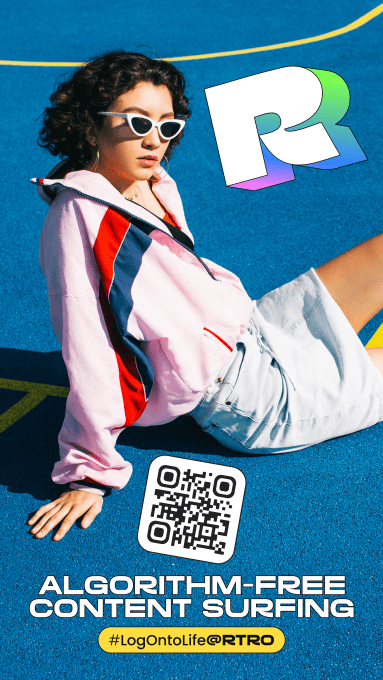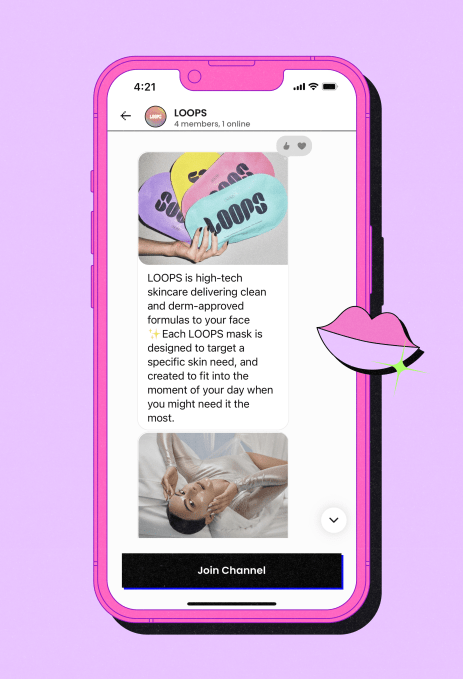
Ahead of Meta’s text-based social network launch, women-founded social networking startup RTRO launched its app this week with the goal of connecting brands, creators, and their fans and followers in a more positive environment focused on human connections and communities. , not algorithm-based content. To achieve this, RTRO divides its social experience into two parts – on the one hand, you can keep up with friends or family in RTRO ‘circles’. On the other hand, users can switch to see content from creators and brands in their own space.
Additionally, RTRO claims to offer robust content management features focused on keeping the app free of bullying, toxicity, and the ability to interact with ChatGPT.
Founded by two technology and marketing experts, the startup’s approach to social networking is one that aims to take users back to a simpler time when social networks were more focused on sharing authentic content and making connections with other people. This nostalgia for earlier days is reflected in the app’s name, “RTRO,” which is a misspelling of the word “retro.”
After polling Gen Z and Millennial users, the team found that people’s top complaints about social media apps today were about the number of brand ads appearing in users’ feeds and the algorithm-driven experience. But people also said they wanted to use social media to stay in touch with others they care about and to view entertaining content.
The RTRO founders explained that brands have also shared their grievances about modern social media.

With a background in experiential marketing, co-founders Nicole Falco and Tristan Brennan have worked with hundreds of Fortune 500 and 1000 brands over the years, including Brennan’s marketing agency TH Experiential. This work involved creating various digital products, apps and websites for brands to interact with customers globally. But brands often express their confusion and frustration about integrating social media into their campaigns.
“TikTok is still a bit of a mystery to them, and then on[Instagram]the ever-changing rules and ever-changing features and algorithms make it difficult for brands to figure out how to stand up to those who need it,” Falco said.
These complaints from users and brands prompted the founders to think about how they could create something better.
“We were looking at social media through the lens of the human experience, and how can we improve it a little bit, and also through the lens of technology, what technology can we take advantage of?”

The end result is RTRO, a social app where you can switch between your personal communications, brand and creator content, each with their own spaces. On the personal side, there aren’t any brands interrupting the experience — however, they do have a way of staying engaged. RTRO prompts users several times a week to post – encouraging posts of affirmations, GIFs, or updates about what you’re doing in real life (has been labeled #LogOntoLife). Brands can sponsor these claims, if they choose.
Meanwhile, the other side of the app — also known as RTRO TV — is an algorithm-free space where brands and creators cross paths with their audience in a chat-like environment. At launch, RTRO has around 50 TikTok and Instagram creators creating content for the app. Users can reply to their posts, such as liking them, but not message or comment. To interact with RTRO TV, users browse through several ‘channels’ dedicated to topics such as travel, food, beauty, and more. The company says this gives users more control over the type of content they see in their feeds.
“You can go to this channel and explore brand and creator content — so you have full control over seeing what you want to see. This is brand new. This kind of experience doesn’t currently exist in an app.”
In some ways, however, the offer is similar to TikTok’s test of personalized topical feeds.
In addition, content creators can choose to create and post to a private circle within their channel space. When finished, they can turn off the circuit. Content creators can also block users from messaging in the circle or delete them if they are hateful or toxic.
Creators tested with RTRO said they liked the ability to have more personal and casual conversations with followers.
“On these channels, people with hundreds of thousands of followers find they can make one Instagram post a day — it has a very personalized image,” says Brennan. But in channels, they can now post multiple times a day, he explains. “They can have a casual conversation. It doesn’t have to feel formal (or fancy) for a moment to stand out. It creates something a little more personal,” he continues. “We find the same thing with brands as well. They don’t just post something to promote their products. They talk about their internal teams or their culture, what they’re doing today… There’s just something unique about having something that feels a little less formal.”
Brands testing RTRO include Alastin Skincare, KISS Nails, Loops Beauty, Halo 42, JOAH, and more.

Another feature allows users to interact with ChatGPT through an integration that allows them to ask AI for ideas and inspiration – something that could be another test case for how consumers respond to AI in social networking settings. So far, this has been a bust for Snapchat — its users recently criticized the app’s introduction of the My AI feature, calling it “creepy” and calling for its removal.
Other apps have seen better luck integrating AI and social networking. Ghost, a mobile messaging app that allows friends to post anonymously in a group chat, has just introduced an iMessage add-on and add-on that allows users to create small apps using ChatGPT. The app then moved to the fifth position in the social category on Apple’s iMessage app store.
To get the RTRO app off the ground, the team worked with an outside company, but the in-house CTO had previously created a number of consumer digital experiences and mobile apps for larger companies like Microsoft, Amazon, iHeartMedia, CLEAR, WeWork, and Grailed. The startup aims to bring its outsourcing team in as well at some point in the future, and says those talks are already underway.
The company hasn’t shared its revenue model plans yet, but it aims to launch this part of its strategy in the next quarter or so.
RTRO, a remote distributed team of less than a dozen, is currently supported by angel-only funding, including investment from both founders. No seed funding or seed funding has been raised yet.
RTRO is a free download on the App Store.
